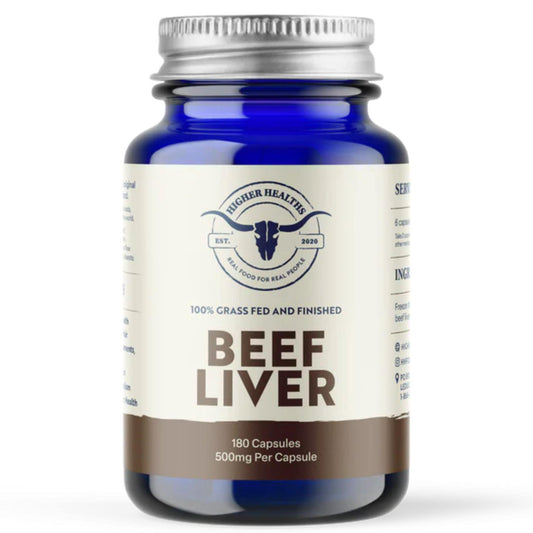2 Min Read
6 Benefits of Beef Liver Supplements for Fertility

Looking to get pregnant and wondering what are the best supplements for fertility? One that might not have been on your radar is beef liver, specifically beef liver supplements. Yes, beef liver supplements may offer some benefits for fertility due to their rich nutritional profile. Several important nutrients found in beef liver are known to play crucial roles in reproductive health.
Here are six of the key nutrients in beef liver supplements and their potential impact on fertility:
Beef Liver Supplements Contain Vitamin A
Beef liver is a potent source of preformed vitamin A (retinol), which is essential for the development and function of reproductive organs. Vitamin A is also important for the health of the male and female reproductive systems.
Beef Liver Contains B Vitamins (especially B12 and Folate)
B vitamins, including B12 and folate, are important for DNA synthesis, cell division, and the development of healthy eggs and sperm. Adequate levels of these vitamins are crucial for preventing neural tube defects during pregnancy.
Beef Liver is High In Iron
Iron is essential for overall health and can contribute to a woman's reproductive health. Adequate iron levels are important for preventing anemia, which can impact fertility.
Beef Liver Contains Zinc
Zinc, a mineral contained in beef liver supplements, plays a role in hormone regulation, egg development, and sperm health. It is important for both male and female reproductive systems.
Beef Liver Contains Copper
Copper is involved in the synthesis of collagen, an essential component of connective tissues. It also plays a role in fertility, although excessive intake should be avoided.
Beef Liver Contains Collagen
Collagen, found in beef liver supplements, is important for the health of reproductive tissues, including the cervix and uterine lining.
While beef liver supplements can contribute to the intake of these beneficial nutrients, it's crucial to emphasize a balanced diet and lifestyle for overall reproductive health. Additionally, it's advisable for individuals planning to conceive or facing fertility issues to consult with a healthcare professional or a registered dietitian to ensure that their nutritional needs are met and to discuss any potential supplementation in the context of their specific health status and dietary habits.










